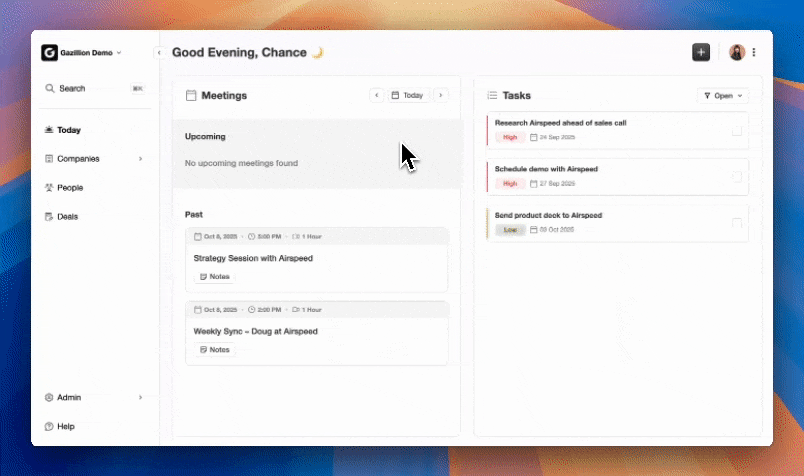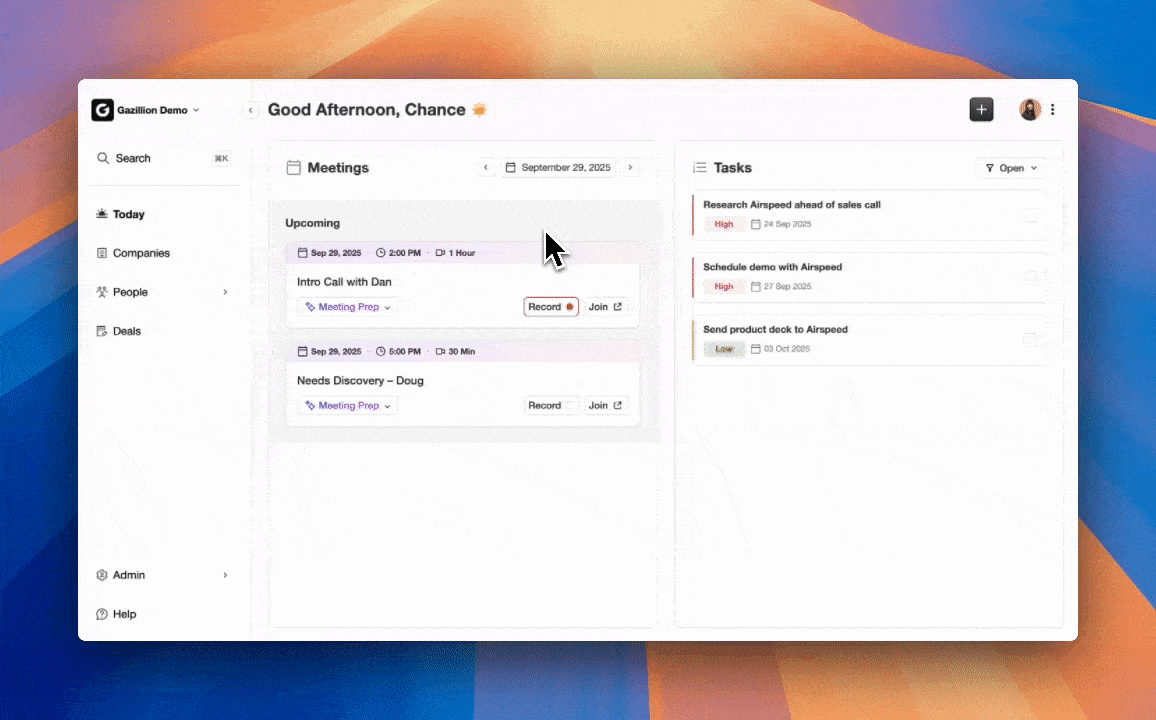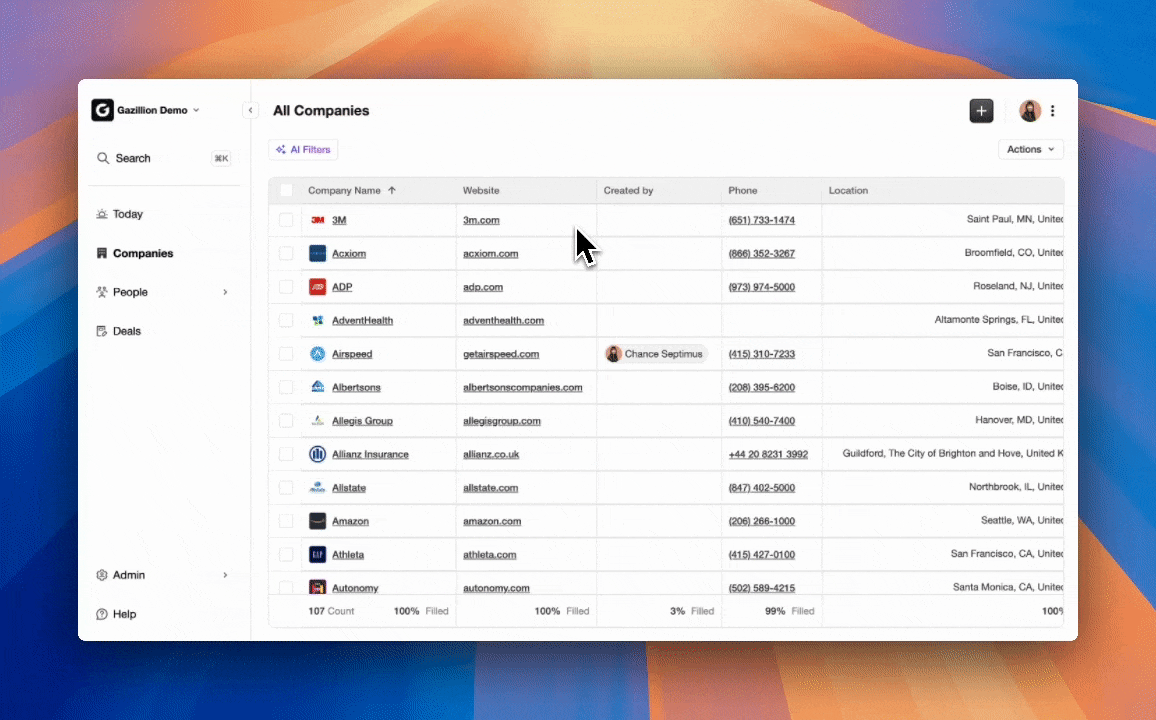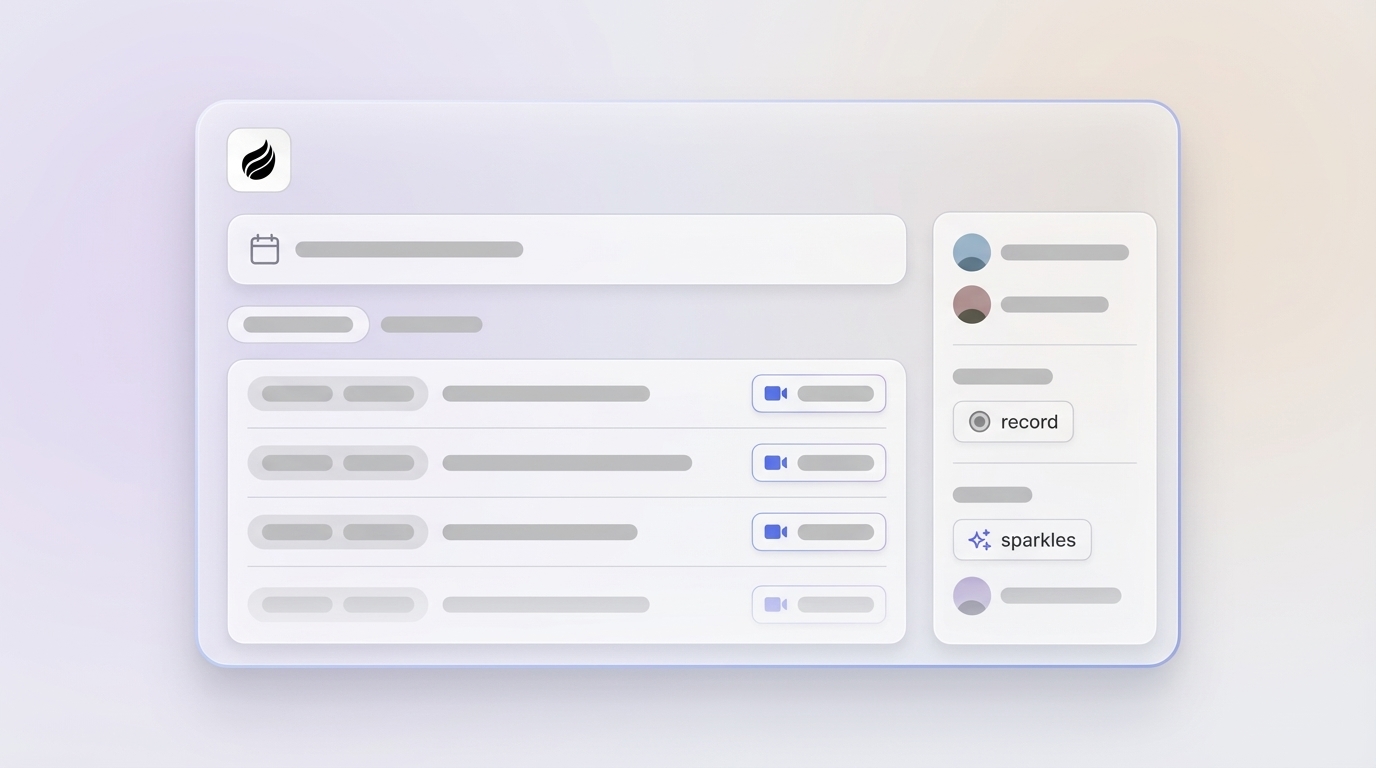Last updated: February 1, 2026
Key Takeaways for Sales Leaders
- AI meeting assistants have shifted from simple transcription tools to active agents that automate CRM workflows and reduce admin time.
- Coffee automatically creates contacts, logs activities, and generates pipeline insights in Salesforce and HubSpot, saving 8-12 hours weekly per rep.
- Tools like Otter.ai, Fireflies, and Krisp excel at note-taking but often leave “rotting notes” that never reach the CRM.
- Sales teams still face data silos, accuracy issues, and manual entry that can cost enterprises millions each year in data quality problems.
- Sales teams can upgrade productivity with Coffee’s CRM automation and turn every meeting into a revenue action.
Passive Notetakers vs Active AI Sales Agents
The AI meeting assistant market now splits into two clear groups: passive notetakers and active AI agents. Passive tools like Otter.ai, Fireflies, and Krisp capture conversations and generate summaries, yet they still rely on reps to move insights into the CRM and follow up.
Coffee follows a “Good Data In, Good Data Out” approach and behaves like an active AI sales agent. It creates contacts, logs activities, enriches records, and surfaces pipeline insights directly inside Salesforce or HubSpot. Sales reps recover 8-12 hours each week that previously went to manual admin work and can spend that time selling.

This difference matters because passive tools only improve documentation. Coffee tackles the deeper problem of fragmented sales data and manual CRM upkeep that slows modern revenue teams.
2026 AI Meeting Assistant Landscape for Revenue Teams
The 2026 AI meeting assistant ecosystem covers a wide range of use cases and price points. Fathom offers free instant call recording with paid plans from $15-$29 per user monthly, while Fireflies focuses on team collaboration with 800 free minutes before $10 monthly per user pricing.
Krisp stands out with bot-free audio processing at $8-$15 per user monthly, which appeals to teams that dislike visible meeting bots. tl;dv emphasizes timestamped highlights and AI search, and Avoma targets customer-facing teams with meeting intelligence and G2 ratings of 4.6/5 stars.
New hardware-driven trends also appear. SwitchBot’s AI MindClip wearable mic and Anker’s Soundcore Work recorder enable continuous transcription without traditional bots, which helps address privacy and user experience concerns.
Coffee separates itself by combining meeting intelligence with CRM automation. It acts as the missing link between passive transcription tools and full revenue operations platforms.
Sales Team Pain Points That AI Notetakers Do Not Fix
Sales teams still struggle with productivity even after adopting AI meeting assistants. Gartner research shows that 50% of rep time goes to admin work, and about two-thirds of the day disappears into non-revenue tasks like data entry, email, and internal meetings.
User feedback highlights friction across popular tools. Fireflies.ai users report clunky CRM integrations that demand heavy manual setup, and Otter.ai users describe a confusing interface. Speaker identification and multilingual accuracy issues can also weaken transcript reliability.
The deeper challenge lies in workflow integration. Many AI meeting assistants trap insights inside their own platforms, which forces reps to copy and paste into Salesforce or HubSpot. This siloed approach keeps the admin burden in place instead of removing it.
Poor data quality costs enterprises $12.9–$15M annually, often due to manual entry and weak CRM sync. Coffee’s agent-driven workflows directly address these issues through automated orchestration across meetings and CRM.
Why Coffee Is Built for Sales-Focused AI Meetings
Coffee focuses on CRM automation, so every meeting feeds clean data into your pipeline. The AI agent sends pre-meeting briefings, joins calls as a bot on Zoom, Teams, or Meet, and syncs outcomes into Salesforce and HubSpot without extra clicks.

The platform encodes sales methodologies like BANT and MEDDIC into structured notes, which keeps qualification data consistent across the team. Coffee enriches contacts with ZoomInfo-level details, and the “Compare” feature surfaces pipeline insights that replace manual spreadsheet reviews.

|
Feature |
Coffee |
Otter.ai |
Krisp |
tl;dv |
|
CRM Auto-Updates |
Yes (SF/HubSpot) |
Limited/Zapier |
No |
Yes (SF/HubSpot Business) |
|
Botless Option |
No |
No |
Yes (Audio) |
No |
|
Pipeline Insights |
Yes (“Compare”) |
No |
No |
Advanced (Coaching/Analysis) |
|
Time Savings |
8-12 hrs/week |
Summaries only |
Noise cancel |
Highlights |
Coffee meets enterprise standards with SOC 2 Type 2 compliance and GDPR alignment. Simple seat-based pricing avoids complex usage metering, and the underlying data warehouse keeps historical context that many CRMs overwrite during field updates.
Teams can see Coffee’s CRM automation in practice by visiting Get started with Coffee and modernizing their sales workflow.
How Sales Teams Deploy Coffee in Three Steps
Coffee rolls out through a straightforward three-step setup. Teams connect to Google Workspace or Microsoft 365, authenticate their CRM, and then activate the AI agent for transcription, summaries, and automatic data logging. The product fits small and mid-sized businesses with 1-20+ reps that want CRM automation without a heavy implementation project.

One fast-growing AI company illustrates this impact. The team generated tens of millions in revenue while still managing sales in spreadsheets. They avoided Salesforce and HubSpot because of the manual upkeep those tools required.
Coffee started creating contacts directly from Google Workspace and removed human data entry. The Pipeline Compare feature simplified weekly pipeline reviews and replaced scattered spreadsheets.
The rollout produced clear results. Reps saved 8-12 hours per week, forecasting accuracy improved through automatic data capture, and API access supported custom briefing workflows. This outcome aligns with predictions that 81% of sales leaders expect AI automation to cut admin time.
Gartner expects B2B sales teams using generative AI to reduce prospecting and prep time by more than 50%, which positions Coffee as a practical way to reach those gains.
Build vs Buy: Choosing Coffee Over Custom AI
Revenue leaders evaluating AI meeting assistants must decide whether to build internal tools or buy a proven platform. They also weigh botless versus bot-based recording and standalone tools versus companion apps that sit beside the CRM.
The build-versus-buy analysis usually favors Coffee because custom development brings complex integrations and ongoing maintenance. BCG’s 10-20-70 principle shows that successful AI programs depend 70% on people and processes, so a turnkey platform often delivers value faster than a bespoke project.
Botless recording can improve user comfort while still keeping transcription quality high. Coffee’s companion approach works with existing CRM investments and avoids the risk of ripping and replacing core systems.
Teams often worry about integration depth and data security. Coffee addresses integrations with Zapier support today and deeper native connections on the roadmap. SOC 2 Type 2 and GDPR compliance, along with strict data isolation, keep customer data out of public AI training sets.
Where Passive Notetakers Fall Short for Sales
Standalone transcription tools often create new workflow bottlenecks for sales teams. Fireflies.ai requires manual CRM configuration, and Otter.ai’s interface complexity can slow adoption.
Low perceived ROI and tool fatigue appear when assistants do not connect cleanly to existing sales workflows. In those cases, they become one more system to manage instead of a genuine productivity boost.
The main limitation of passive notetakers is their inability to run CRM workflows on their own. Reps still type notes into Salesforce or HubSpot, which erases most of the time savings that transcription promised.
Coffee removes this gap with agent-driven automation that turns meeting intelligence into CRM actions without extra effort from reps. This approach keeps data quality high and workflows consistent.
Why 2026 Is the Time to Upgrade to Coffee
The shift from passive transcription tools to active AI agents now defines the next era of sales technology. Traditional assistants store information in silos, while Coffee converts every conversation into automated CRM updates that save 8-12 hours per rep each week.
Competitive pressure around AI adoption continues to grow. Teams that cling to manual CRM processes while rivals automate risk falling behind on sales velocity, forecast accuracy, and data quality.
Sales organizations can turn meetings into revenue workflows by visiting Get started with Coffee and moving from passive notes to active CRM automation.
Frequently Asked Questions: AI Meeting Assistants for Sales Teams
What is the best free AI meeting assistant?
Fathom and Otter.ai provide free tiers that cover basic transcription and summaries. Coffee uses seat-based pricing instead of a free plan, yet its agent-driven CRM automation usually delivers higher ROI. The 8-12 hours saved per rep each week often outweigh the cost through higher sales productivity.
Which AI meeting assistant works best with Salesforce?
Coffee Companion offers native Salesforce integration that creates contacts, logs activities, and surfaces pipeline insights automatically. Tools like Fireflies often rely on manual setup or Zapier, which introduces friction. Coffee’s agent updates Salesforce in the background so reps avoid manual copy and paste.
What is a botless AI note taker?
Botless AI note takers, such as Krisp’s audio processing, record meetings without a visible bot joining the call, which can feel smoother for clients. CES 2026 also introduced wearable options like SwitchBot’s AI MindClip for continuous recording, although those devices do not handle CRM automation. Coffee joins Zoom, Teams, and Meet as a bot and then pushes structured sales data into the CRM.
Which AI meeting assistants offer enterprise security in 2026?
Coffee maintains SOC 2 Type 2 and GDPR compliance, which matches enterprise expectations alongside tools like Fellow and Otter.ai. Coffee also isolates customer data, so meeting content never trains public AI models while still enabling powerful automation.
How does Coffee compare to Otter.ai?
Otter.ai focuses on transcription and real-time collaboration but leaves CRM updates to the user. Coffee’s AI agent executes CRM workflows, creates contacts, and generates pipeline insights that Otter.ai does not provide. The time savings of 8-12 hours per week per rep create a clear ROI advantage for Coffee over passive transcription alone.
